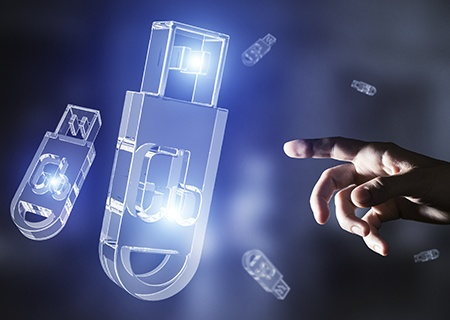In the world of data storage, USB flash drives—also known as thumb drives, pen drives, or memory sticks—have become indispensable. But, have you ever wondered, “Are all USB drives the same?” If so, you’re not alone! With so many options out there, choosing the right one can be overwhelming.

In this article, we’ll break down everything you need to know about USB flash drives, from their types to their various uses, helping you make an informed decision when purchasing for personal use or your business.

Part 1: What Is a USB Flash Drive?

A USB flash drive is a small, portable device used to store and transfer data between devices via a USB port. These devices are powered by flash memory, which means they don’t require a power source to retain data. So, even if your computer is turned off, the information on your thumb drive stays safe and intact.

You may have heard several names for these devices—pen drives, memory sticks, and thumb drives—but they all serve the same essential purpose: to store and transfer data easily.
But, how does it work? Unlike hard drives that have moving parts, USB flash drives use electronic circuits to save and transfer data, making them much more durable and reliable over time. Simply plug your memory stick into a USB port on any computer, and you’re ready to go!

Part 2: Different Types of USB Flash Drives Based on Usage

When it comes to selecting a USB flash drive, it’s important to understand that not all drives are made equal. Different types serve different purposes. Here’s a rundown of some common types based on their usage:


1.Security Flash Drives
If you prioritize data security, a security flash drive might be what you need. These drives offer features like encryption or password protection to keep your files safe from unauthorized access. Think of them as your personal safe for sensitive data!
2. Music Flash Drives
For those who love to carry their music collection wherever they go, music flash drives offer a sleek and compact solution. These drives are perfect for transferring music files from one device to another, without taking up too much space.


3. Boot Flash Drives
A boot flash drive is a lifesaver when your computer has a system failure. By making your pen drive bootable, you can use it to install or troubleshoot an operating system. It’s like a tech Swiss Army knife for your computer!
Part 3: Different Types of USB Flash Drives Based on Appearance

Did you know that USB flash drives also come in various shapes and sizes? Here are some of the most fun and functional designs:


1. Credit Card Flash Drives
If you want a USB flash drive that’s sleek and fits right in your wallet, a credit card flash drive is the way to go. Customize it with your name or brand logo for a professional touch.
2. Keychain Flash Drives
For the forgetful ones among us, a keychain flash drive is a brilliant idea. Attach it to your keys, and you’ll never misplace your drive again!


3. Wristband Flash Drives
A wristband USB is as fashionable as it is functional. Wear it on your wrist, and you’ll always have a flash drive ready to go—ideal for anyone who needs to transfer data on the fly.
4. Branded USB Flash Drives
Show your love for your favorite brands with branded USB drives. Whether it’s your personal favorite or a corporate gift, these drives let you make a statement.

Part 4: Different Types of USB Flash Drives Based on Storage Capacity

Storage capacity is a key factor when choosing a USB flash drive. Whether you’re using it for personal storage or business purposes, there’s a memory stick that fits your needs. Here’s a guide to the most common storage capacities:
- 2GB to 4GB: Perfect for everyday file storage, like documents and presentations.
- 8GB to 16GB: A great middle ground for casual users, offering enough space for photos, music, and small videos.
- 32GB to 64GB: Ideal for larger files like HD videos or backups.
- 128GB and Beyond: For heavy-duty users who need to store a large volume of high-quality data, such as full-length movies, extensive video collections, or large project files.

Part 5: How to Recover Data from a Flash Drive Using Wondershare Recoverit

Accidents happen. If you’ve accidentally deleted files or your USB memory stick becomes corrupted, don’t panic! You can recover lost data using Wondershare Recoverit, an easy-to-use data recovery tool that can help you retrieve files from your USB flash drive.
Here’s how it works:
- Download Wondershare Recoverit and install it on your computer.
- Select your USB drive from the list of available devices.
- Scan the drive to find deleted or lost files.
- Preview and recover the files you need.
With Recoverit, your lost data could be just a few clicks away!
Conclusion
Whether you’re looking for a USB flash drive for personal storage or a custom solution for your business, the world of pen drives is vast and varied. From security drives to bootable USB sticks, there’s a memory stick designed for every need.

So, next time you’re on the lookout for a USB flash drive, consider what you’ll be using it for, how much storage you need, and if any special features (like security or speed) are important to you.


What type of flash drive do you use? Let us know in the comments below!

